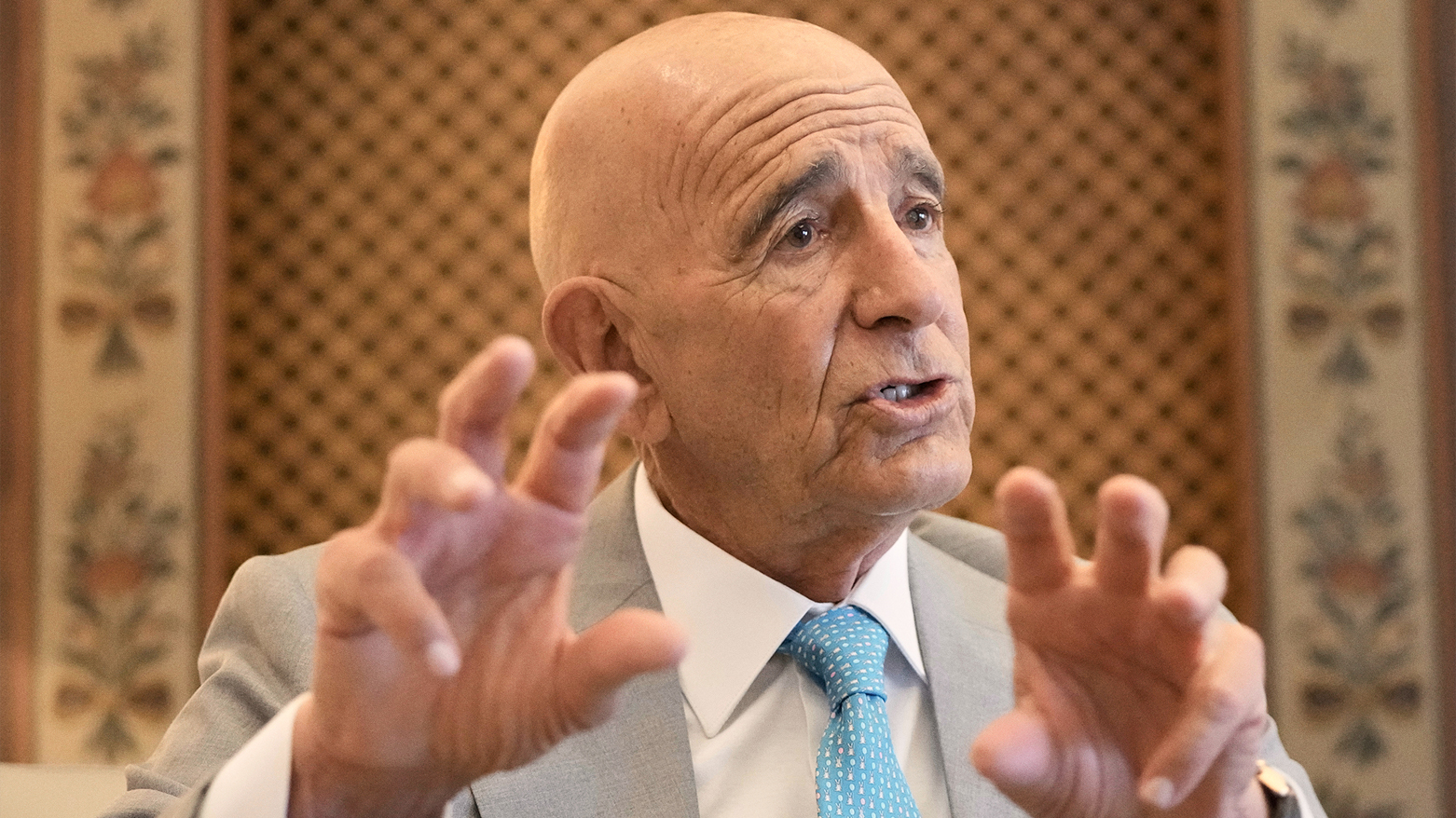U.S. to Syria's Sharaa: Adapt or Risk Losing Support
U.S. envoy to Syria Tom Barrack urged Syria's Sharaa to be more inclusive and change policies after sectarian violence or risk losing support, a Reuters report said. The envoy offered U.S. mediation with Israel and warned there is "no plan B" for Syria.

ERBIL (Kurdistan 24) – A top U.S. envoy has issued a stark warning to Syrian Interim President Ahmed al-Sharaa to urgently recalibrate his policies and embrace a more inclusive approach following a new wave of sectarian violence, or risk losing international support and watching the country fragment, according to a Reuters report.
In an interview with Reuters in Beirut, U.S. envoy to Syria Tom Barrack said he had privately advised Sharaa to revisit elements of the pre-war army structure, scale back Islamist indoctrination, and seek regional security assistance.
Barrack told the news agency that without swift change, Sharaa risks squandering the momentum that brought him to power.
"I'm going to adapt quickly, because if I don't adapt quickly, I'm going to lose the energy of the universe that was behind me," Barrack said, describing the mindset Sharaa should adopt. He added that Sharaa could "grow up as a president and say, 'the right thing for me to do is not to follow my theme, which isn't working so well.'"
Sharaa, leader of the former al-Qaeda offshoot Hay'at Tahrir al-Sham (HTS), came to power in December last year after his forces led a swift offensive that toppled the government of President Bashar al-Assad after more than 13 years of civil war.
According to Reuters, though Sharaa's own fighters have roots in Sunni militancy, he has promised to protect Syria’s many minorities, including Alawites, Christians, and the Druze. However, that pledge has been severely tested, first by mass killings of Alawites in March, and now by recent violence in the southern Sweida province, the heartland of Syria’s Druze community.
Hundreds of people were reportedly killed in clashes there between Druze fighters, Sunni Bedouin tribes, and Sharaa's forces. Israel also intervened with airstrikes to prevent what it called a potential mass killing of Druze.
Barrack told Reuters that the new government should be "more inclusive quicker" in integrating minorities. However, he also pushed back against reports that Syrian security forces were behind violations against Druze civilians, suggesting Islamic State (ISIS) militants may have been disguised in government uniforms and that social media videos are easily doctored and unreliable.
"The Syrian troops haven't gone into the city. These atrocities that are happening are not happening by the Syrian regime troops. They're not even in the city because they agreed with Israel that they would not go in," he told Reuters.
The U.S. envoy said the stakes in Syria are dangerously high, with no viable alternative to the new government. "With this Syrian regime, there is no plan B," Barrack stated. "If this Syrian regime fails, somebody is trying to instigate it to fail. For what purpose? There's no successor."
Asked if Syria could follow the dire paths of Libya and Afghanistan, he reportedly replied: "Yes, or even worse."
The U.S. helped broker a ceasefire last week that ended the fighting in Sweida, but Washington has stated it did not support Israel's airstrikes on Syria, which Barrack said added to the "confusion." His message to Israel, according to the report, is to have dialogue to alleviate its concerns, with the U.S. ready to play the role of an "honest intermediary." Barrack noted to Reuters that Sharaa had signaled he could normalize ties with Israel in due time.
Ultimately, the envoy said the United States was not dictating Syria's political format, only calling for stability, unity, fairness, and inclusion. "If they end up with a federalist government, that's their determination," he concluded. "And the answer to the question is, everybody may now need to adapt."
